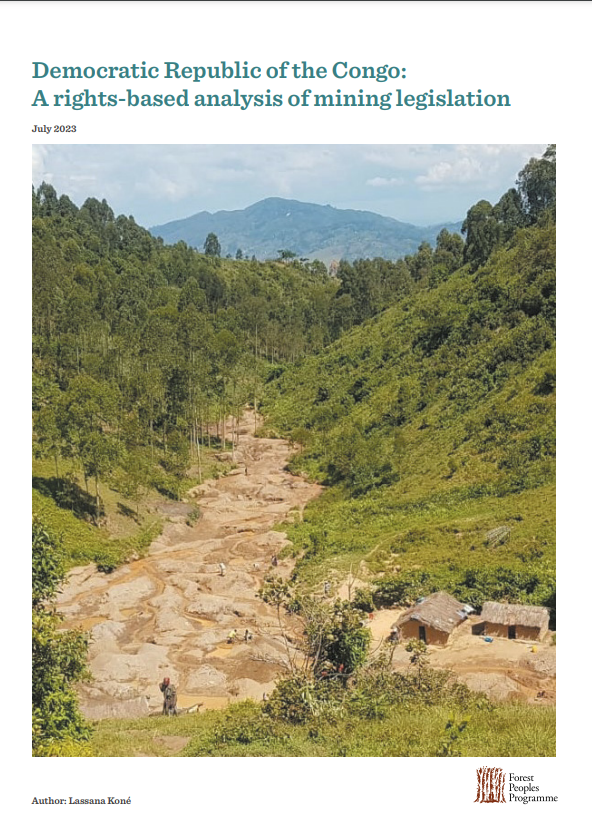Democratic Republic of the Congo: A rights-based analysis of mining legislation
Key messages
The report provides an analysis of existing mining legislation in DRC from a rule of law and human rights perspective. It examines the legal framework pertaining to land tenure and mining, as well as the capacity of public authorities to respect and apply principles of due diligence, accountability, transparency and the legality of decision-making procedures.
Importantly, the author suggests that improved land tenure security can provide opportunities to reduce the negative environmental and social impacts of mining. And he stresses the need for further research to understand the impact of the mining sector on forests in DRC.
Read the full report in English or French
Among the report’s findings:
-
Deforestation predicted to increase in DRC. The scale of mining-related deforestation (both the impact of large-scale mining and small-scale artisanal mining) in the DRC is still unknown. Despite relatively low historical rates of deforestation over the period 1990-2010, deforestation has increased sharply in the DRC in recent years, and future land-use scenarios predict a continued increase in deforestation due to population growth and the expansion of commercial agriculture, as well as timber and mineral extraction.
-
Extractive industries ignore community land rights regulations. In spite of the State’s exclusive ownership over land and sub-surface resources, a number of specific land rights are attached to customary occupation, as recognized by the Indigenous Peoples’ Rights Law. However, the legal regime applicable to extractive industries ignores this recognition.
-
DRC’s recognition of land rights falls short of international obligations. DRC has legal obligations under international instruments it has ratified but the recognition of land rights under national law falls short of these international obligations and the procedure for granting mining concessions under national law is not consistent with the requirements of international human rights standards.
-
Legal loopholes put indigenous peoples and local communities at risk. Loopholes in the existing legal framework governing the mining sector, a lack of harmonising sectoral legislation with the Mining Code, and gaps in implementing international human rights standards, risk indigenous peoples and local communities being left behind.
-
International due diligence frameworks fail to address key issues. In the absence of an effective national legal liability landscape requiring human rights due diligence as a standard of conduct, some frameworks have been developed at the international level, including in the European Union (EU) and the United States (US), to support “clean supply chains”. However, existing international interventions in the DRC have largely ignored the prevailing legal and institutional framework and have failed to address issues of state sovereignty over minerals; indigenous peoples’ and local communities’ land rights; good governance; and poverty.
-
Informal mining is a source of income for rural communities. The report highlights the importance of informal mining to the livelihoods of several rural communities who engage in it due to a lack of economic alternatives, but also as a form of resistance to unjust laws and failed policies.
The study starts with an overview of DRC’s mining sector, outlining its importance to the country’s economy and its social and environmental impact. It then examines the legal framework pertaining to land tenure and mining, as well as the capacity of public authorities to respect and apply principles of due diligence, accountability, transparency and the legality of decision-making procedures.
The report explains how demonstrating governance is an ongoing challenge due to weak institutions; a context of legal pluralism; poor coordination between sectoral ministries; and, often, no implementation of the laws governing the mining sector.
In its conclusion, the report outlines possible avenues for access to justice and remedy, through challenging mining operations nationally and internationally, and using litigation as a tool for affected communities. It also provides a number of points for civil society actors to consider for future actions, including: advocacy in relation to international human rights standards; areas that merit further research; strategic test cases, and participation in law reform processes.
This report was carried out by Forest Peoples Programme with partners Actions pour la Promotion et Protection des Peuples et Espèces Menacés (APEM) and Environnement Ressources Naturelles et Développement (ERND).



